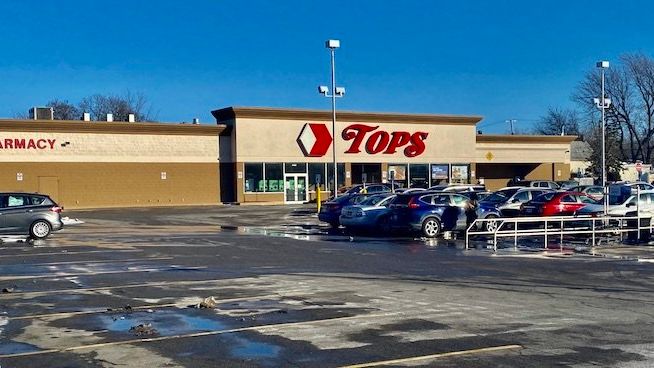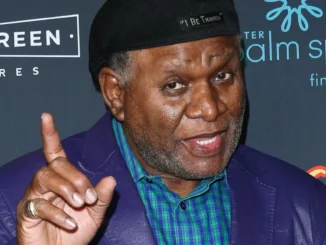
The fatal mass shooting inside a Buffalo, New York, grocery store on May 14 has shaken the faith of national political leaders by echoing a tragic and familiar refrain across the country — another mass shooting that appears motivated by race and hate.
Payton Gendron, 18, traveled 200 miles from his home in Conklin, New York, to Buffalo, where he strapped on body armor, walked into the Tops Friendly Market and shot 13 people in the store. He streamed the attack online before the police subdued him. Eleven people shot were Black, while two were White — 10 of the victims died.
Federal authorities found a racist 180-page document written by Gendron, who said the assault was intended to terrorize all non-White, non-Christian people to persuade them to leave the United States.
A Washington Post analysis of more than 600 messages found that Gendron had planned to target the Tops grocery store since February, because its customer base is mainly Black.
“The American experiment in democracy is in danger like it hasn’t been in my lifetime,” said President Joe Biden in a Buffalo speech May 17. “It’s in danger this hour. Hate and fear are being given too much oxygen by those who pretend to love America but who don’t understand America.”
Biden went on to say, “In America, evil will not win, I promise you. Hate will not prevail. White supremacy will not have the last word.”

Law-enforcement officials said that New York State police troopers were called to Gendron’s high school last June for a report that the-then-17-year-old had made threatening statements.
From President Biden to New York Governor Kathy Hochul, political officials have offered many words in the wake of a shooting that has stoked fear and worry across the country, while law enforcement searches for answers.
The Sunday morning after the incident, Hochul spoke at True Bethel Baptist Church in Buffalo, where she said: “Our hearts are broken, and I’m going to say one thing: Lord, forgive the anger in my heart right now.
“Forgive me, Lord. I know it doesn’t belong there, Lord,” Hochul said. “I was raised to love and respect and care. Well, to hear these stories and the pain that’s out there in a community that I love so well — I’m angry.”
The governor went on to quote Psalm 34: “’The Lord is near the broken-hearted and saves the crushed of spirit.’ Well, Lord, I know you’re here because we are so broken-hearted, and we are crushed in spirit at this moment. But this is temporary because with your love, Lord, we will rise up, and our crushed spirits will rise again.”
Gov. Hochul also took practical steps. On May 20, she issued two executive orders.
The first Executive Order is designed to fight the surge in domestic terrorism and violent extremism frequently inspired by social media platforms and internet forums. The Executive Order calls on the Division of Homeland Security and Emergency Services to establish a new unit, dedicated solely to the prevention of domestic terrorism, within the Division’s Office of Counterterrorism.
The second calls on New York State Police to establish a dedicated unit within the New York State Intelligence Center (NYSIC) to track domestic violent extremism through social media. The second Executive Order will require State Police to file for an Extreme Risk Protection Order (ERPO) under New York State’s Red Flag Law whenever they have probable cause to believe an individual is a threat to themselves or others.
In addition, Hochul is proposing legislation to close “Other Gun” loopholes by revising and widening the definition of a firearm to get dangerous guns off the street.
While she offered political remedies, spiritual leaders also made pleas to end violence.
Bishop Vashti McKenzie, the interim president and general secretary of the National Council of Churches, said in a statement: “Our communities have not healed from the onslaught of violence from past White supremacist attacks and now the scabs have been ripped off to bleed again.”
McKenzie stood with President Obama and other bishops of the African Methodist Episcopal Church after the young white supremacist Dylann Roof walked into Mother Emanuel AME in Charleston, South Carolina, in 2015 and opened fire, killing nine people during a midweek Bible study.
“This racial violence has to stop,” McKenzie said. “We must all increase our efforts to bring racism to an end. That will not happen by only making ceremonial or performative gestures that don’t get to the root causes of the problems. We have to do the deeper work. This is especially true for Christians.”
The Rev. Eric Manning, pastor of Mother Emanuel AME, said in a statement that he and members of his congregation could empathize with the suffering from the May 14 shooting in Buffalo.
“We can relate to your hurt, pain and anger,” Pastor Manning said. “The congregation of Mother Emanuel was in the same place almost seven years ago.”

On May 17, New York City Mayor Eric Adams joined faith leaders who came to a Harlem vigil for the 10 victims of the racially fueled mass shooting.
During the vigil at Bethel Gospel Assembly Church, Adams placed one of the 10 pink roses on a table. But he also referred to a shooting closer to home — race and hate are not the only reasons why people of color are being killed.
“You are no less demonic,” said Adams to the drive-by shooter who killed an 11-year-old girl in the Bronx. Adams had just visited her parents, and he drew parallels between the Buffalo shooting and New York City gun violence.
Many communities around the country are hosting vigils for racial healing after the Buffalo shooting. In Rockville, Maryland, people from Jewish, Asian, Hispanic and other groups targeted by white supremacists were to gather for a vigil at the Rockville Seventh-day Adventist Church.
“As a family of faith, we pray for healing for all who have been affected,” the Seventh-day Adventist Church in North America said in a statement on May 19. “But as much as our prayers go up and our hearts go out to those who have been devastated by this horrific event, we cannot stop there.
“We denounce this mindless and premeditated act of hatred and violence. We call on all people of goodwill to use their voices and platforms to denounce hatred and racism in all of its forms. May we use this evil intention as a catalyst to propel us to action and demonstrate that love is stronger than hatred.”
Senior contributor Hamil Harris is an adjunct professor at the University of Maryland, College Park, and has been a lecturer at Morgan State University. Harris is minister at the Glenarden Church of Christ and a police chaplain. He was a longtime reporter for The Washington Post.
Produced in association with Religion Unplugged.
Recommended from our partners
The post Buffalo Shooting Underscores The Human Cost Of Hatred appeared first on Zenger News.





